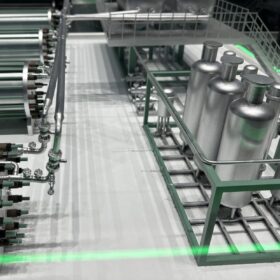KfW Development Bank Pledges €24 Billion to Support Germany's Hydrogen Network Expansion
Key Ideas
- KfW Development Bank offers €24 billion to bridge the financial gap for network operators in Germany's hydrogen network expansion.
- The loan will finance an amortization account to offset deficits, with surplus revenue repaying the loan as network fees exceed costs.
- The hydrogen core network project aims to connect production, import sites, and industrial hubs using existing gas pipelines and new hydrogen lines.
KfW Development Bank has committed a significant €24 billion grant to support the expansion of Germany's hydrogen network infrastructure. This funding aims to address the financial challenges faced by network operators due to high investment costs and initially low revenues from network charges. The German national hydrogen strategy, which includes a plan for a 9,000 km hydrogen network by 2032, has received approval from the Federal Network Agency. To ensure affordability for users, the network fees will be initially capped. The loan from KfW will be used to create an amortization account that will help operators manage deficits until revenue from network fees surpasses costs, enabling them to repay the loan. The hydrogen network project will involve repurposing existing gas pipelines and the construction of new hydrogen lines to facilitate connections between production facilities, import sites, and industrial centers. The first sections of this network are scheduled to be operational next year. Stefan Wintels, CEO of KfW, highlighted the significance of this project as a crucial step towards green hydrogen adoption, particularly for energy-intensive industries. He emphasized the role of the amortization account in contributing to a sustainable financing structure for the hydrogen core network.
